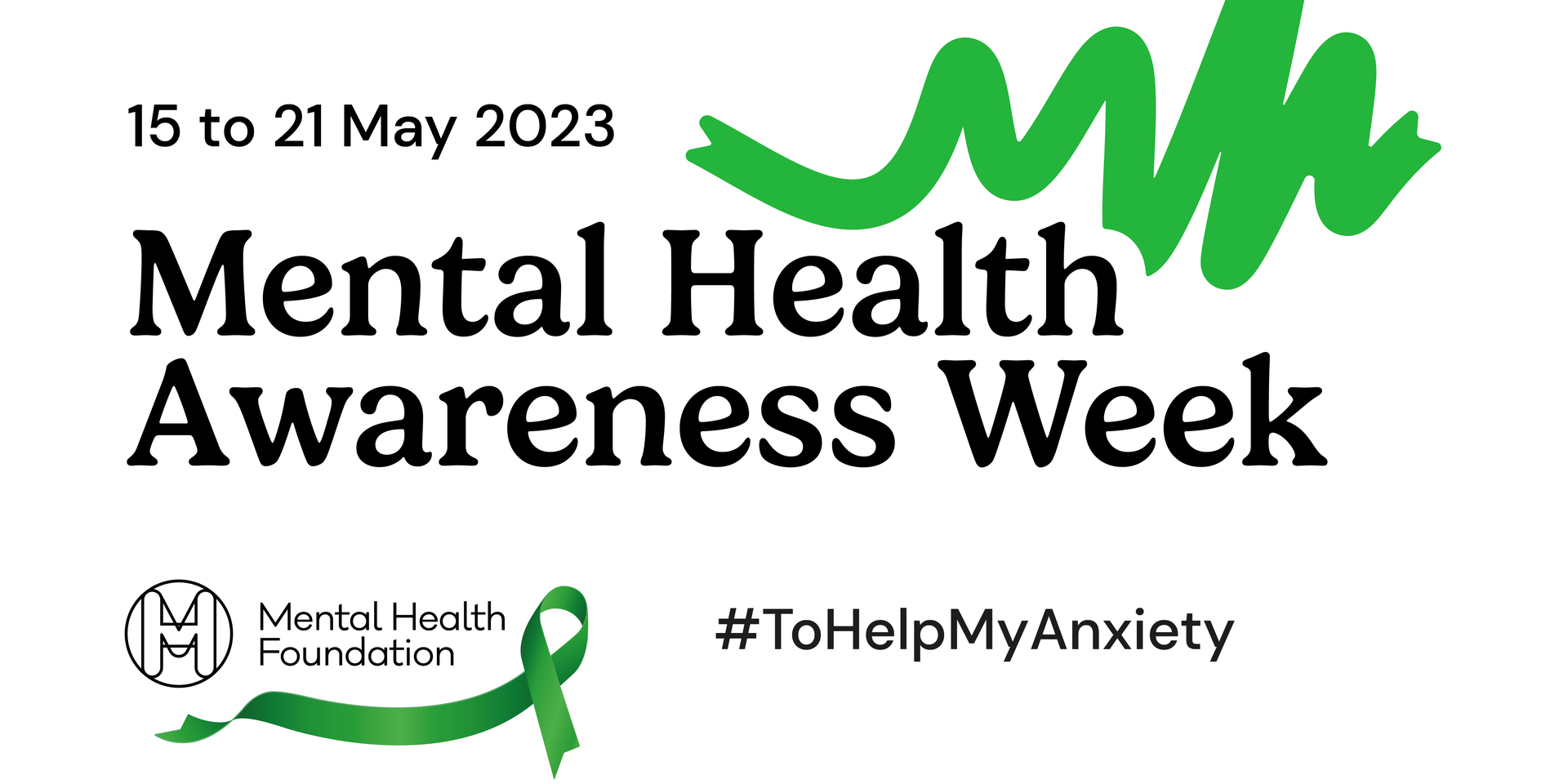Mental Health Awareness Week 2023
Posted on 13th May 2023 at 12:32
Mental Health Awareness Week 2023
This week is Mental Health Awareness Week and the theme for the week is #ToHelpMyAnxiety. We want to use this opportunity to talk about Anxiety, what it is and how young people can be supported with it.
So, what is Anxiety?
Scientists believe that the brain is made up of different parts, which manage different aspects of our thinking. The 'lower' parts of our brains control our feelings and emotions and also our instinctive and protective behaviours, such as breathing and assessing dangerous situations.
The 'upper' part of our brain - often known as the pre-frontal cortex - is the part of our brain responsible for reasoning, language and decision making. This part of the brain undergoes a huge amount of change and growth during teenage years and this is what scientists attribute some risk-taking behaviours at this age to.
The 'lower' parts of our brain are responsible for sensing danger and will cause us to react instinctively if it does so. Scientists believe this is an evolutionary trait that was most needed during our 'cave man' years, when dangers may have included things like wolves and dangerous animals. When the brain senses such dangers, we go into 'fight', 'flight' or 'freeze' modes - which can look like a person either becoming very aggressive, running away or becoming completely withdrawn.

When the brain is in this mode, the 'upper' part of the brain completely 'flips' and cannot be engaged. Trying to reason with someone who is in this state is pretty pointless, as they will be unable to process language effectively and unable to reason and weigh up information to make a decision.

Everyone feels anxious sometimes, usually in response to perceived dangers of the modern age, such as speaking in front of lots of people, taking exams or meeting someone new. It is normal for us to feel anxious in these situations, and some element of anxiety can help us to perform better at these times.
However, sometimes the brain gets 'stuck' into a 'fight', 'flight', 'freeze' mode for no apparent reason and a person begins to feel anxious all of the time. When someone suffers with anxiety, the levels of anxiousness they feel will also be acute and intensely difficult to manage. Many people who suffer with anxiety will find it hard to know what it is that is making them feel anxious, as it is the result of a 'malfunction' of the brain, which continues to put the insitinctive protective behaviours into action even when there is no clear danger.
These acute and intense feelings can be overwhelming and also extremely tiring and can trigger other mental health conditions as a result, including depression, OCD and eating disorders.
Young people who struggle with anxiety may use unhealthy coping mechanisms such as self-harming and substance misuse to manage their feelings, and this can result in further issues for them.
People who struggle with anxiety often experience particular thinking patterns such as catastrophising - where a small issue is blown up in the person's thoughts and becomes a big issue and a real danger. An example of this might be not receieving a response from a text and worrying that something terrible has happened.

Self-help

So, if we think of the brain a little like a computer, and anxiety as a malfunction of that computer, we can start to find ways to help manage anxiety. When the brain perceives danger, real or not real, and shuts down the reasoning functions, we need a way to 're-boot' it and programme it to understand when there is no threat.
Because the reasoning function of the brain has been shut down, however, just telling ourselves that everything is ok does not tend to work. That is why when others try to reason with you when you are anxious, it often just makes things worse, because the brain becomes even more overwhelmed. It's a bit like trying to open too many windows on your computer all at once, and then the computer just freezes.
So, how can we let our brain know that we are safe? What we need to do is to allow our bodies to communicate with our brain - through our nervous system. Scientists are finding out new things about how our brains and nervous systems interact all the time, and there have been lots of studies published on this. The upshot of all of this, though, is that we need our bodies to reset our brain by being calm.
When we are anxious, our bodies will often be in a state that is ready to act - our heart will be pumping faster, our muscles will be tense and adrenaline and cortisone will be flooding our system. Doing things to bring down that response in our bodies, will also gradually bring down the response in our brain. Different things work for different people, but include things like going for a walk, being in the natural environment, doing some exercise, listening to music, watching a favourite TV programme or film or doing some arts and crafts or something creative. This is where the art of Mindfulness has been found to be very effective, and many people use Mindful practice to help them manage their anxiety. Breathing exercises can also be helpful.
Where to get help

Anxiety can be triggered by life events that have been difficult or traumatic, but sometimes it is not clear what has triggered the anxiety. Scientists believe that there is also a genetic element to the risk of developing mental health conditions.
Where there are life events that have been difficult or traumatic, such as family break ups, or bullying, or - for all of us in recent years - the pandemic, talking through these experiences can help alleviate the source of the anxiety and help to establish more balanced thinking patterns around situations.
There are a range of organisations that you can talk to for free, either online, by text or by phone and we have listed a few of them HERE.
How can we help?
The most common issue that Children and Young People experience is anxiety and this has increased rapidly since the pandemic. Anxiety can itself lead to further mental health issues and many young people who are anxious become isolated. We are working on providing some new groups for children with anxiety to socialise with peers in a non-demanding way to help combat their isolation and help them feel less alone.
There are many ways that children and young people can be supported with anxiety and learn to recognise and manage their anxious feelings themselves. However, sometimes, children and young people will need specialist help to manage their anxiety and the sooner they are able to access this, the better, as long waits can result in more serious conditions developing and becoming entrenched. At Y:AMHS, we know how essential this early intervention is and that is why we raise money to fund treatment for children and young people with mental ill health who are struggling to access the support they need through local services. Our applications for support open every three months and application forms can be downloaded HERE.
And on that note...
What is the current situation in accessing mental health support?
In July 2021, studies found that 1 in 6 Children and Young People have a diagnosable mental health problem, up from 1 in 9 in 2017. That means that, statistically, 5 children in every classroom will be experiencing a mental health issue.
A & E attendances for Children and Young People under 18 with a psychiatric condition tripled between 2010 and 2019.
Suicide was the leading cause of death for young people aged between 5-34 years old in 2019.
And nearly half of young people aged 17-19 with a mental health condition has self-harmed or attempted suicide.
We find these statistics absolutely staggering, expecially in the light of the fact that only 1 in 3 children and young people with a mental health condition accessed the NHS care and treatment that they need and 76% of parents report that their children's mental health has deteriorated while waiting for CAMHS.
What is the local situation? Recently, Cara Davis from West Sussex County Council admitted that "We know that current need completely outstrips the resources we have." Our recent survey of people who work with Children and Young People, found that accessing mental health treatment continues to be either 'difficult' or 'extremely difficult' in our area. 75% of respondents told us that 3/4 of children and young people with mental health conditions had waited three months or more for treatment, with 3/4 of these having waited a year or more. Our respondents told us that more than 70% of the children and young people they work with who had experienced mental ill health would have benefitted from being able to access private therapy. This is what they had to say about the impact of being able to access the right support early on: "This support provided swiftly can stop escalation and allow the young person to grow..." "This stops situations getting worse and allows students to move forward with their life and education quicker." "It can make life possible for the young people and prevent severe self harm and potentially suicide." This is why we continue to do what we do - raising the money to pay for private therapy for children and young people in our area so that they can access early support for mental ill health. You can help us to #changethestory - find out more HERE
Together, we can #changethestory
Share this post:








